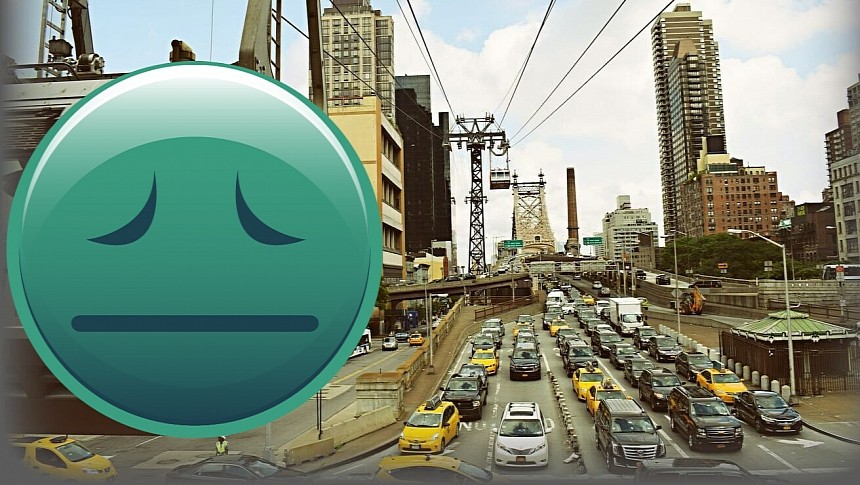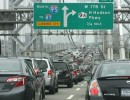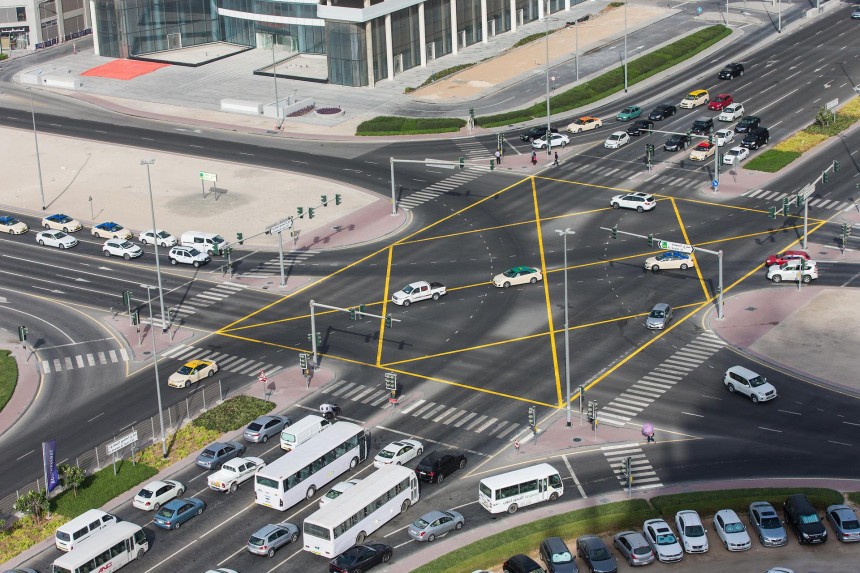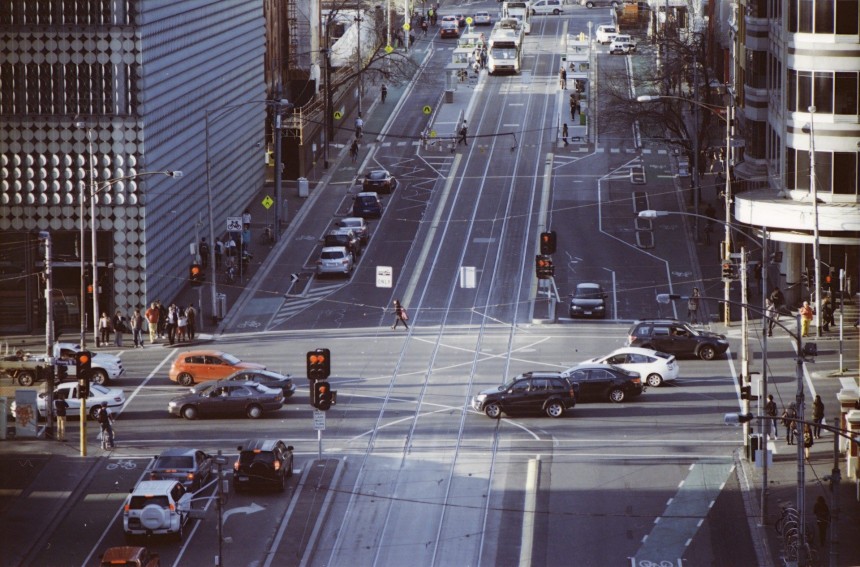The idea that commuting is unpaid work has been floating around for a while. Most full-time employees and even those on temporary contracts believe time spent on the way to work and back should be compensated. This study shows that there might be something behind that claim. Here's the gist of it.
Some European countries force employers to assume responsibility for their employees who go from home to work. Those nations also incentivize companies and public institutions to offer their salaried workers some commuting perks like gas vouchers, monthly bus passes, or an allowance for using bicycles.
For some lucky employees who can stay at home or work from wherever, it can get even better – they get a monthly allowance that should cover a part of their electricity and internet bills.
In the US and other parts of the world, that's rare. Americans especially often rely on their personal vehicle to commute. Considering how expensive new and used cars have been lately, that's a hefty investment. But those who need employment and must stick to a schedule can only sometimes rely on public transport. It's just not that good in America. So, they buy a set of wheels whether there's money for such an acquisition or not.
Most of us have at least once experienced the dreadful feeling of having to wake up, shower, get behind the steering wheel, and drive to work. There are days when you simply don't want to do it, no matter if it's because of health reasons or not. But nobody promised us that being responsible adults would be easy, right?
Now, imagine that your daily commute takes one hour or more, and you feel like not even leaving the house. That's not a nice thing to experience. It's bound to make you at least a little bit grumpy.
People like being comfortable, which is perfectly understandable. Thousands of years of evolution and technological progress took the habit of hunting for food out of us. When your basic needs are met, why would you force it upon yourself to get out of that beloved comfort zone?
Despite all those positives, some large companies still believe that the way forward is hybrid work or a full return to the status quo that existed before the pandemic. They might want to check out this South Korean study.
The researchers are confident in their findings that suggest a long commuting time can lead to depression. It's not a certain thing, but it's definitely something that's noticeable. They discovered that the risk of suffering from this mental health disorder is more prevalent in older males (40-49 years old) and younger females (20-29 years old).
The risk of getting depressed is even more increased when a long road to work and back is coupled with low income, a standard 40-hour workweek, shift work, having no kids as a man, and having more than two children as a woman.
The researchers chose South Korea for their study because – believe it or not – people there have the longest average commuting time. That's according to OECD data. They used a sample of 23,415 employees aged between 20 and 59.
Keep in mind that depression is a common mental disorder. Many people experience it during their lives. Some do it unknowningly because they don't ask for help or get diagnosed.
A Gallup study from a few months ago shows that Americans aren't far behind when it comes to mental well-being. The findings showed that almost 30% of Americans report having been diagnosed with depression in their lifetime, while nearly 18% stated they were currently battling the condition. That's something we should take very seriously.
Besides all that, a simple search on the most popular social media platforms reveals that Americans aren't very fond of having to travel more than an hour to work. That's completely understandable, but it's also another nail in the coffin of office work.
Another major advantage of people working from their homes is lessening the burden put on the environment. Fewer cars on the road (be they ICE-powered or EVs) translates into fewer emissions, and that's a win for everyone, not just workers.
However, we must face facts: at the end of the day, few companies truly care about their employees' mental well-being. Some do because they have to. Take airlines as an example. They can't afford to have depressed pilots sitting in the cockpit.
Most commercial entities just stick to the general guidelines and try to implement some policies in this respect, but they can't overdo it. Firms are for-profit entities whose primary purpose is to create value for stakeholders. You can only maximize profit margins if employee costs are properly managed. One person missing one or more days of work can affect a team's performance and delay things that need to happen according to a schedule.
It's important to understand both sides when looking at this complicated issue. We can't move forward if we disregard the needs of every party involved in the job market.
Finally, if you find yourself in a position where commuting takes a toll on your well-being, you should look for other opportunities closer to home or jobs that can be done no matter if you're in an office or not. Don't forget that health comes before anything else.
For some lucky employees who can stay at home or work from wherever, it can get even better – they get a monthly allowance that should cover a part of their electricity and internet bills.
In the US and other parts of the world, that's rare. Americans especially often rely on their personal vehicle to commute. Considering how expensive new and used cars have been lately, that's a hefty investment. But those who need employment and must stick to a schedule can only sometimes rely on public transport. It's just not that good in America. So, they buy a set of wheels whether there's money for such an acquisition or not.
Most of us have at least once experienced the dreadful feeling of having to wake up, shower, get behind the steering wheel, and drive to work. There are days when you simply don't want to do it, no matter if it's because of health reasons or not. But nobody promised us that being responsible adults would be easy, right?
People like being comfortable, which is perfectly understandable. Thousands of years of evolution and technological progress took the habit of hunting for food out of us. When your basic needs are met, why would you force it upon yourself to get out of that beloved comfort zone?
Driving is fun, but only when you want to do it
Nothing proved that we like spending time in our homes better than the pandemic. The quarantine was a blessing in disguise for many workers. Not having to commute just to sit at a desk for eight hours improved the well-being and finances of many around the world. It also helped companies see a spike in productivity. Some entities even lowered their operational costs because they were able to rent less office space.Despite all those positives, some large companies still believe that the way forward is hybrid work or a full return to the status quo that existed before the pandemic. They might want to check out this South Korean study.
The risk of getting depressed is even more increased when a long road to work and back is coupled with low income, a standard 40-hour workweek, shift work, having no kids as a man, and having more than two children as a woman.
The researchers chose South Korea for their study because – believe it or not – people there have the longest average commuting time. That's according to OECD data. They used a sample of 23,415 employees aged between 20 and 59.
Keep in mind that depression is a common mental disorder. Many people experience it during their lives. Some do it unknowningly because they don't ask for help or get diagnosed.
Besides all that, a simple search on the most popular social media platforms reveals that Americans aren't very fond of having to travel more than an hour to work. That's completely understandable, but it's also another nail in the coffin of office work.
Greenify the world... By staying at home?
Companies that don't force people to travel long distances to work in an office where they don't do meaningful work should take notice. They might stand to gain from offering their employees some work-from-home perks or move entirely to this way of running the day-to-day operations.Another major advantage of people working from their homes is lessening the burden put on the environment. Fewer cars on the road (be they ICE-powered or EVs) translates into fewer emissions, and that's a win for everyone, not just workers.
Most commercial entities just stick to the general guidelines and try to implement some policies in this respect, but they can't overdo it. Firms are for-profit entities whose primary purpose is to create value for stakeholders. You can only maximize profit margins if employee costs are properly managed. One person missing one or more days of work can affect a team's performance and delay things that need to happen according to a schedule.
It's important to understand both sides when looking at this complicated issue. We can't move forward if we disregard the needs of every party involved in the job market.
Finally, if you find yourself in a position where commuting takes a toll on your well-being, you should look for other opportunities closer to home or jobs that can be done no matter if you're in an office or not. Don't forget that health comes before anything else.



















